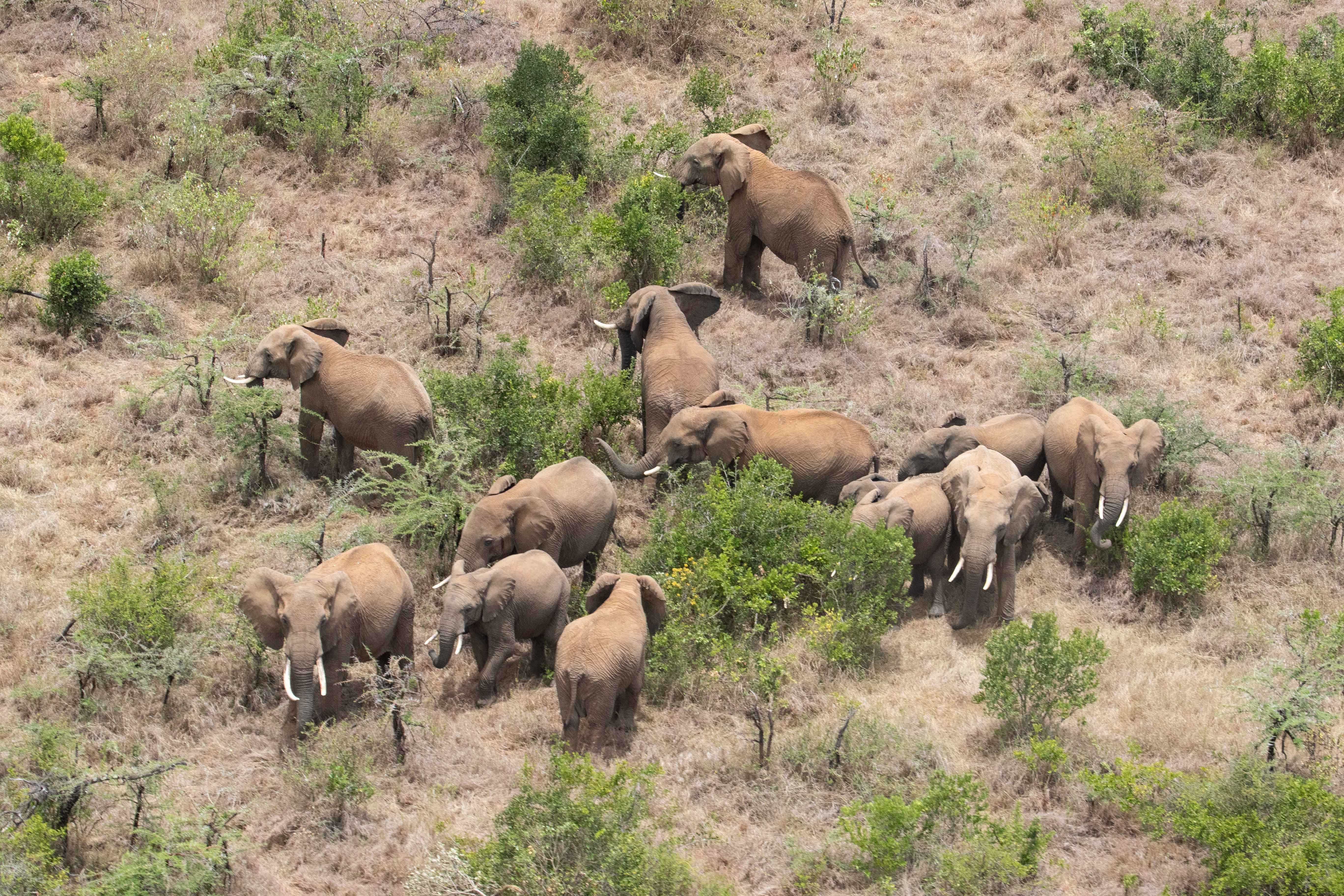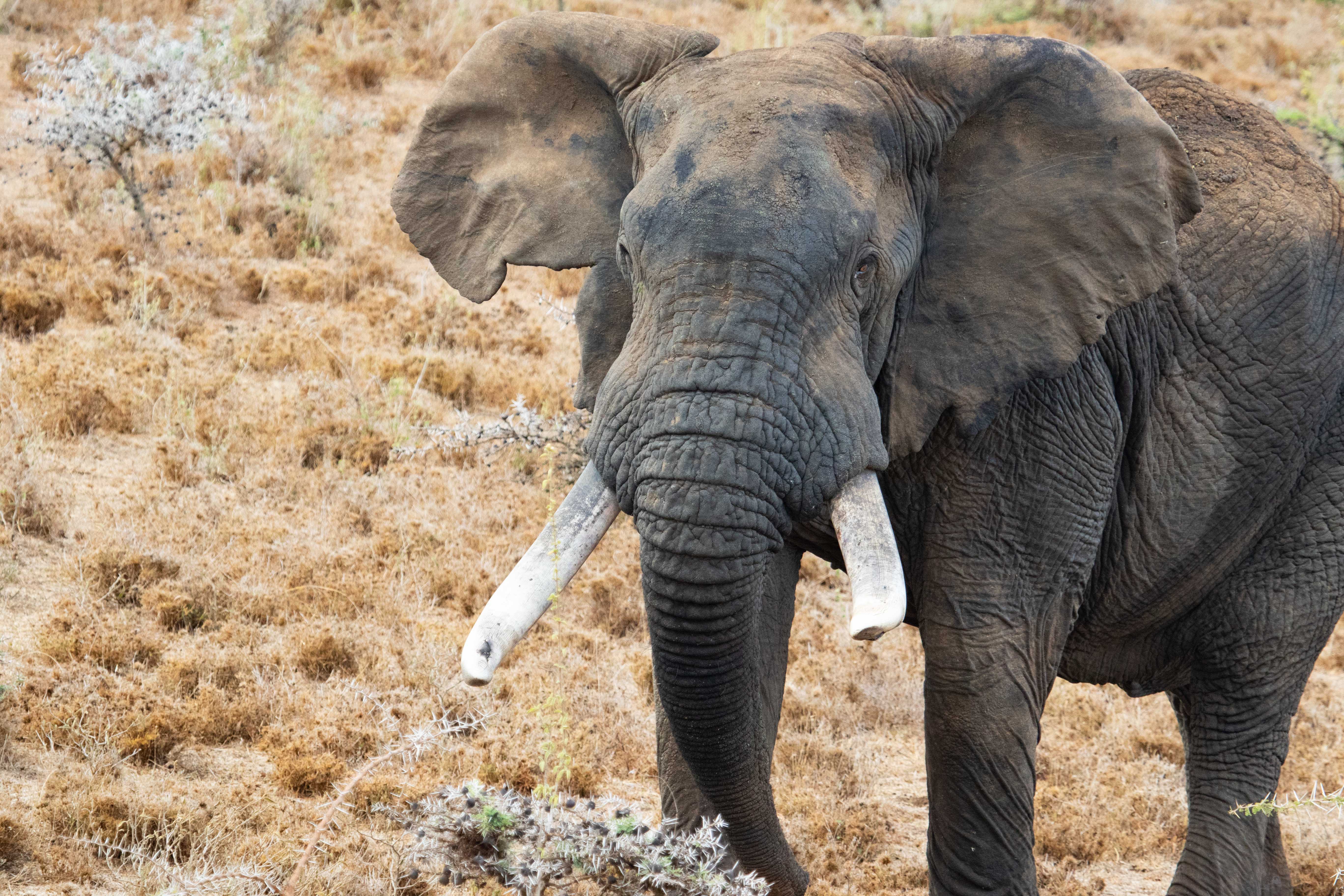Elephants relocated in Kenya to prevent conflict with humans
Conservation charity Space for Giants’ Human-Elephant Coexistence team joined the Kenya Wildlife Service to coordinate an extraordinary ‘drive’ to move a large number of crop-raiding bull elephants

Your support helps us to tell the story
From reproductive rights to climate change to Big Tech, The Independent is on the ground when the story is developing. Whether it's investigating the financials of Elon Musk's pro-Trump PAC or producing our latest documentary, 'The A Word', which shines a light on the American women fighting for reproductive rights, we know how important it is to parse out the facts from the messaging.
At such a critical moment in US history, we need reporters on the ground. Your donation allows us to keep sending journalists to speak to both sides of the story.
The Independent is trusted by Americans across the entire political spectrum. And unlike many other quality news outlets, we choose not to lock Americans out of our reporting and analysis with paywalls. We believe quality journalism should be available to everyone, paid for by those who can afford it.
Your support makes all the difference.Dozens of elephants have been moved across fences in Kenya to keep them out of smallholder farms. This is so important given that crops are often now families’ sole source of food and income because COVID-19 has devastated livelihoods and cost many their jobs.
Conservation charity Space for Giants’ Human-Elephant Coexistence team joined the Kenya Wildlife Service (KWS) to coordinate an extraordinary ‘drive’ to move a large number of crop-raiding bull elephants and family herds away from farmland in one of the major milestones of the West Laikipia Fencing Project.
Led by Maurice Schutgens, Space for Giants’ Conservation Programme Manager, and with KWS support, 49 elephants were herded beyond the fence into a conservation area and away from farmers’ fields.

This helps the farmers by reducing the risk elephants will eat or trample their crops, and helps the elephants by keeping them safe from retaliatory attacks by angry farmers.
Of the 49 elephants moved on Tuesday, 12 are known crop-raiding bulls monitored by the Space for Giants teams as well as other local organisations. The remaining 37 elephants consist mainly of family groups that were simply on the wrong side of the fence. This elephant-drive exercise was able to happen thanks to the COVID-19 Response Grant from the African Elephant Fund (AEF) and private donors James Knight and Laurel Mader.
“Elephant management is inherently difficult,” says Schutgens. “This is especially true in increasingly human dominated landscapes such as north central Kenya.
“In order to create some level of coexistence between people and elephants conservationists have to rely on all the possible tools out there - an elephant drive - using a helicopter is one such tool. Pushing known crop raiding elephants behind specially designed electric fences will help alleviate conflict with smallholder farmers and help to improve food security - something which is critical in a COVID-19 world.”
Space for Giants was born from pioneering research into the experiences of both elephants and people living together in this shared landscape in north-central Kenya, and the organisation has since expanded its role to support local people and governments in finding value in conservation management.
Alongside building law enforcement capacity, attracting investment into conservation landscapes and innovative conservation research across the nine African countries in which it works, Space for Giants uses a holistic approach to effectively implement, support and maintain its work.
As a response to the COVID-19 crisis, Space for Giants drafted an urgent appeal for emergency support for the farmers and families affected by crop-raiding elephants.
With backing from the African Elephant Fund and private donors, Space for Giants collared three bull elephants in February in order to monitor their behaviour and respond swiftly to the data gleaned from this research. Following their movements via these collars, the teams were able to observe the elephants’ movements in and out of smallholder farmland.
Help is desperately needed to protect elephants and the habitats they depend on for survival. Donate to support Space for Giants HERE
Join our commenting forum
Join thought-provoking conversations, follow other Independent readers and see their replies
Comments